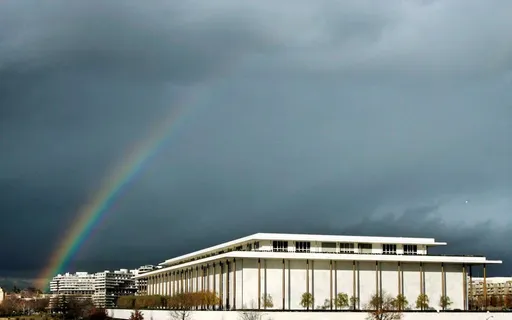A senior United Arab Emirates official denied on Sunday Iranian allegations alluding to the involvement of the UAE in training gunmen that attacked a military parade in southwestern Iran.
The "formal incitement against the UAE from within Iran is unfortunate, and has escalated after the Ahvaz attack," said Minister of State for Foreign Affairs for the United Arab Emirates Anwar Gargash in a tweet.
"The UAE's historical position against terrorism and violence is clear and Tehran's allegations are baseless."
Iranian President Hassan Rouhan had earlier said that the United States wants to create insecurity in Iran.
His comments came a day after the attack during the parade that killed at least 25 people, almost half of them members of the country’s elite Revolutionary Guards.
Speaking before leaving Tehran to attend the UN General Assembly in New York, Rouhani accused US-backed Gulf Arab states of providing financial and military support for anti-government ethnic Arab groups.
Iran's religious leader Ali Khamenei echoed Rouhani's comments by also accusing US-backed Gulf Arab states.
The attack, which wounded at least 70 people, targeted a viewing stand where Iranian officials had gathered in the city of Ahvaz to watch an annual event marking the start of Iran's 1980-88 war with Iraq, state television said.
Khamenei ordered security forces to bring to justice those responsible for one of the worst assaults ever against the Revolutionary Guards, the most powerful military force in the country, which answers to him.
TRT World's Reagan Des Vignes reports.
Khamanei's allegation will likely ratchet up tensions with Iran’s rival Saudi Arabia and its Gulf allies, which along with the United States have been working to isolate Iran.
“This crime is a continuation of the plots of the regional states that are puppets of the United States, and their goal is to create insecurity in our dear country,” Khamenei said in a statement published on his website.
He did not name the regional states he believed were to blame.
Israel is also a key US ally opposed to Tehran.
On Saturday, Rouhani said, "The response of the Islamic Republic of Iran to the smallest threat will be crushing. Those who give intelligence and propaganda support to these terrorists must answer for it."
Hours later, Iran summoned envoys of the Netherlands, Denmark and Great Britain on Saturday night, accusing them of harbouring Iranian opposition groups in their countries, IRNA reported.
“It is not acceptable that these groups are not listed as terrorist organisations by the European Union as long as they have not carried out a terrorist attack in Europe,” foreign ministry spokesman Bahram Qasemi was quoted as saying by IRNA.
Some members of the ethnic separatist movements are based in the European countries.
Multiple claims
Both Daesh and an anti-government Arab group called the Ahvaz National Resistance, claimed responsibility for Saturday's attack.
Yaghub Hur Totsari, a spokesman for a group that identifies themselves as the Arab Struggle Movement for the Liberation of Ahvaz, said the Ahvaz National Resistance, an umbrella organisation of all armed movements, was behind the attack but did not specify which group.
Daesh's Amaq agency posted a video of three men in a vehicle who it said were on their way to carry out an attack on an Iranian military parade.
Two of the men spoke in Arabic about jihad, while the third spoke in Farsi suggesting they were targeting Iranian Revolutionary Guards, according to the recording.
An Iranian military spokesman said the gunmen were trained by two Gulf Arab states and had ties to the United States and Israel.
"These terrorists... were trained and organised by two ... Gulf countries," Brigadier General Abolfazl Shekarchi told the official news agency IRNA.
"They are not from Daesh or other groups fighting (Iran's) Islamic system ... but they are linked to America and (Israel's intelligence agency) Mossad."
Women and children killed
Iran has been relatively stable compared with neighbouring Arab countries that have grappled with upheaval since the 2011 uprisings across the Middle East.
Women and children died in the assault, state news IRNA agency reported.
The assailants had hidden weapons near the parade route several days in advance, said Brigadier General Abolfazl Shekarchi, a senior spokesman for Iran’s armed forces.
“All four terrorists were quickly neutralised by security forces,” Shekarchi told state television.
“A four-year-old girl and a wheelchair-bound war veteran were among the dead.”
Attacks on the military are rare in Iran.
TRT World spoke to political analyst Mohammad Marandi about the attack.
Powerful force
The Islamic Revolutionary Guards Corp (IRGC) has been the sword and shield of Shia clerical rule in Iran since its 1979 Revolution.
The Guards have a big say in Iran’s regional interests and a vast stake worth billions of dollars in Iran’s economy.
Ahvaz is in the centre of Khuzestan province, where there have been sporadic protests by minority Arabs.
The gunmen were trained by two Gulf Arab states and had ties to the United States and Israel, according to Shekarchi.
There was no immediate Gulf Arab comment on his remarks.
Iran and Saudi Arabia support opposite sides in wars in Syria and Yemen and rival political parties in Iraq and Lebanon, fuelling instability in the Middle East.
























